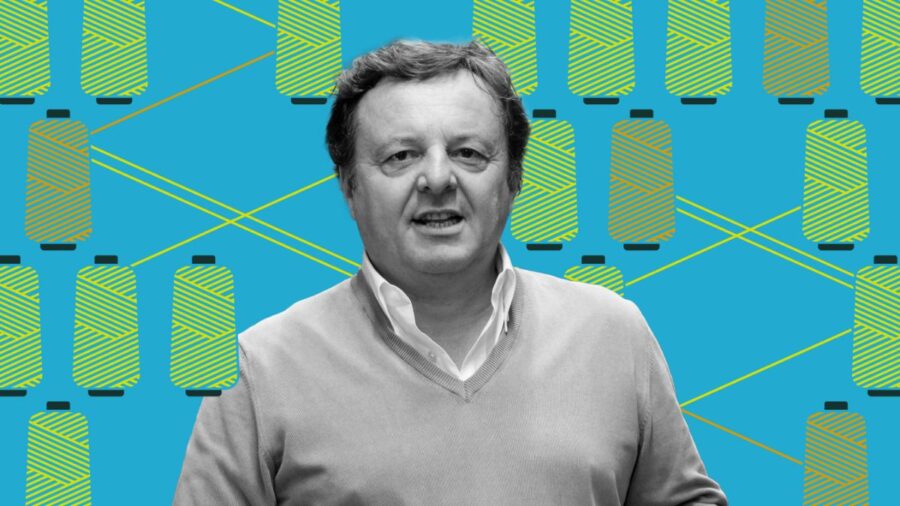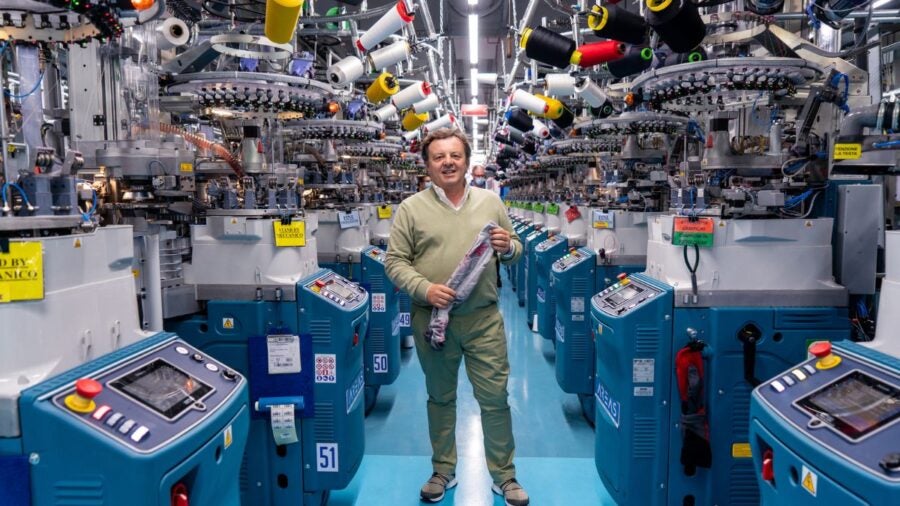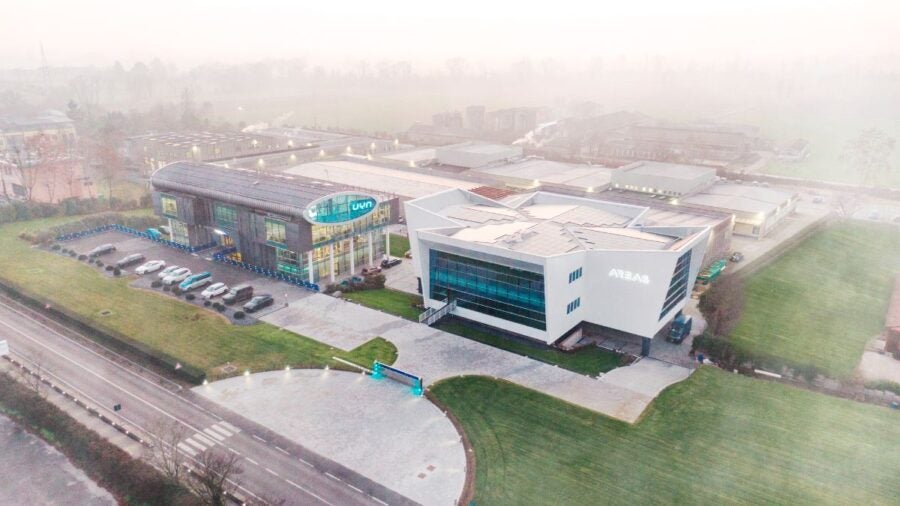
In the small municipality of Asola, in the Lombardy region of Italy, apparel manufacturer Trerè Innovation is on a mission to start a “biotech revolution” in the sportswear industry.
The Italian company started life in the 1950s as a manufacturer of women’s tights and stockings but, under the leadership of its CEO Marco Redini, has since branched out. It now produces a wide range of sportswear under the brand name UYN (pronounced win).
What makes UYN unique, according to its head of marketing Mattia Bazzoni, is a focus on creating high-performance products for athletes, while having as little environmental impact as possible. “Our goal is to work in harmony with our natural surroundings,” he says.
Making trainers from mushrooms
The sportswear company has experimented with a number of natural materials to make its products, including using mushroom-based leather in one of its ranges of trainers. Its ski base layers are made entirely of natural bio-materials and its running shoes start life as socks.
Our goal is to work in harmony with our natural surroundings
The company has a commitment to never use fossil-fuel derived materials in its products (although the soles of its trainers still use recycled plastic). Instead it uses yarn derived from plants, including corn, eucalyptus, beech trees and castor seeds. Waste is also kept to a minimum and any spare cuttings are transformed into “air nest” padding to insulate its jackets.
This is where Redini believes UYN has the biggest advantage over its competitors. “Nobody can compete with us,” he attests. “The big names like Nike, Adidas or Patagonia use so much polyester in their products that they rely on recycling to make green claims. The only thing they sell you is the word ‘sustainability’.”
The company is in the process of applying for B Corp status. “We have already taken steps towards the highest level of sustainability but we are not yet at net zero,” Redini adds. One pressing concern for the CEO is finding a material to replace merino wool in its outerwear. “We need to eliminate merino’s role because sheep emit greenhouse gases,” Redini says. “It’s one of the biggest problems that we have.”
Keeping it in the family
Redini, who took over from his father Luigi as CEO of Trerè Innovation in 1983, has spent his entire life working for the company.

Earlier on in his career, he spent time travelling to different manufacturers across the world where he learnt new methods for garment production. It was while on these trips abroad, that Redini saw the opportunity for Trerè Innovation to expand into new product lines.
“When I returned, I realised that we needed to start making something completely different, as I didn’t see any future for us in hosiery,” he says. “Businesses need to be open to change and transition.”
Today, the company has stores in Italy, Germany, Austria, the US, China, and the UK; holds partnerships with several ski teams, including the British Ski Federation; and opened its first manufacturing centre in the US – in Pennsylvania – last May. Redini claims the American arm of its business is set to break even, and may even become profitable, by the end of next year.
Taking inspiration from Apple’s innovation
It’s not just the materials that help to make UYN’s products sustainable; innovation is also central to Redini’s philosophy. This commitment to innovation can be seen in its new research and development laboratory AREAS, which opened in October.
The 3,500 square foot centre was built in the shape of a cross to encourage the “cross-fertilisation of ideas”. Within its walls are athlete testing facilities, labs for experimenting with new materials, an academy for training new textile technicians, and a creative hub for its marketers and design teams to use.

Redini describes it as a place to “build the future”. He adds: “We wanted to create not only a physical space, but space for ideas that would allow the convergence of multiple fields of knowledge: from science to design, from communication to art.”
In the future, he envisions restaurants, hotels and even a shisha bar opening up alongside the research facility. “I want people to sleep here… to make a world out of it,” Redini adds. “I want this space to become the Mecca for research and development, like Cupertino [Apple’s headquarters], but this will happen only if we have the right people.”
Redini’s comparisons to Apple don’t end there. UYN’s stores, which allow customers to test out its products and learn about the sustainable materials used in their creation, also take inspiration from the Silicon Valley tech company. “We need the shop to show all the innovation that happens in the biolab,” he explains. “It’s similar to what Apple did when it put the iPhone in its Apple stores – people didn’t know how to use the touchscreen at first, everyone still wanted to click [buttons].”
Making a global brand feel local
UYN’s latest Apple-inspired shop opened in Cambridge earlier this year. As the company continues to expand into new countries, Redini is preaching a new philosophy: “We need to think more globally but act local.”
As an example of this, he points to UYN’s plans to manufacture a new range of products in the UK, exclusively for the British market. “The English like products that are made in the UK,” Redini says. “This will be at the heart of our marketing. We want to bring a few products to the UK market that use Italian fabrics but are assembled in the UK.”
This expansion has also involved an ever-growing list of products, including its line of trainers, which were first released in 2020 and have proven a hit with lifestyle customers. Despite their popularity, Redini remains committed to creating technical sportswear first and foremost. “We concentrate on what we are good at, making functional products for every active sport,” he says. “If it becomes a lifestyle product afterwards, that will be decided by the end consumer.”
Despite more than 40 years at the helm, Redini has no plans of slowing down. Asked whether he ever foresees the business being led by someone outside of the Redini family, he says: “First I want to see success on my own. Then we can see what comes next.”

In the small municipality of Asola, in the Lombardy region of Italy, apparel manufacturer Trerè Innovation is on a mission to start a “biotech revolution” in the sportswear industry.
The Italian company started life in the 1950s as a manufacturer of women’s tights and stockings but, under the leadership of its CEO Marco Redini, has since branched out. It now produces a wide range of sportswear under the brand name UYN (pronounced win).
What makes UYN unique, according to its head of marketing Mattia Bazzoni, is a focus on creating high-performance products for athletes, while having as little environmental impact as possible. “Our goal is to work in harmony with our natural surroundings,” he says.
